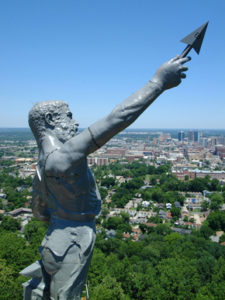When I first went to work for a newspaper, more than 50 years ago, newsrooms had copyboys.
They had a lot of mundane tasks but not on deadline. On deadline they ran copy from reporters’ desks to the City Desk, where it was edited and then rushed downstairs to composing.
Reporters treated copy boys indifferently at best and rudely sometimes. We yelled at them, especially when we were on deadline.
“Copy! Copyboy!” we would shout when we had finished another take — a “take” is a page in newspaper lingo.
I guess part of the reason we yelled at them on deadline is because it made us feel important even if our story wasn’t. He would rush over, grab our copy, and hustle it to the City Desk.

And then, one fine day, The Charlotte News, where I worked in the 1960s, hired a copyboy who was weightlifter. Remember, this was back in the day when there weren’t all that many weightlifters, when most football players didn’t even lift weights.
Anyway, this copyboy looked like copyman. He had muscles in his eyeballs. And, overnight, the culture in the newsroom changed.
“Copyboy?” reporters would say to him, in a normal voice. “Copyboy, if you have a moment, would you mind….”
Coming Friday: I Shoulda Made Notes
